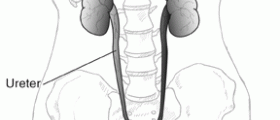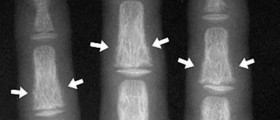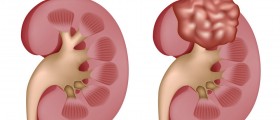
End stage renal disease (ESRD), also called end stage kidney disease, is a condition in which the kidneys almost completely fail to function. End stage renal disease means irreversible damage to the kidneys. The lost function of kidneys can be replaced only with dialysis or a kidney transplant.
Causes of End Stage Renal Disease
In the United States most common causes of end stage renal disease are diabetes and high blood pressure. The condition usually results from chronic kidney disease. However, it may also occur due to reaction to certain medicines, major blood loss and injury or trauma to the kidneys. An affected individual may experience gradual loss of kidney function which lasts for 10 to 20 years before reaching end stage kidney disease.
Symptoms of End Stage Renal Disease
In end stage renal disease kidney function is in the range of 10-15%. Common symptoms include drowsy feeling and fatigue, headaches, loss of appetite, nausea, vomiting, unexplained weight loss, weakness and dry, itchy skin. The patient may also experience mental symptoms like trouble concentrating and thinking, decreased mental alertness and confusion. Skin color changes, there are also changes in nails, bone pain, muscle twitching or cramps and numbness in the hands and feet.
End stage renal disease is also accompanied by swelling and puffiness in feet and ankles, easy bleeding and bruising, anemia, breath odor, increased thirst, frequent hiccups, decreased sexual interest and impotence, menstrual irregularities and sleep problems such as insomnia, restless leg syndrome or obstructive sleep apnea. Decreased urine output, high blood pressure and poor digestion may occur too in this stage of kidney disease. Diagnosis of End Stage Renal Disease
End stage renal disease causes abnormal levels of potassium, sodium, albumin, phosphorus, calcium, cholesterol and magnesium in the blood. The condition also changes results of tests that measure complete blood count, erythropoietin, PTH and bone density. Therefore, the patient with end stage renal disease receiving dialysis must frequently undergo these tests. Treatment for End Stage Renal Disease
The only treatment options for end stage kidney disease are dialysis and kidney transplantation.
Symptoms of end stage renal disease can be treated with medications. High blood pressure can be managed with ACE inhibitors, angiotensin receptor blockers or other medications along with dietary changes which include restricted intake of protein, fluids, salt, potassium, phosphorus and other electrolytes.
Anemia is treated with iron-rich diet, iron supplements, erythropoietin and blood transfusion. Phosphorus levels are controlled with phosphate binders. Finally, patients with end stage renal disease should be vaccinated against influenza, H1N1 and hepatitis A and B.

















Your thoughts on this
Loading...